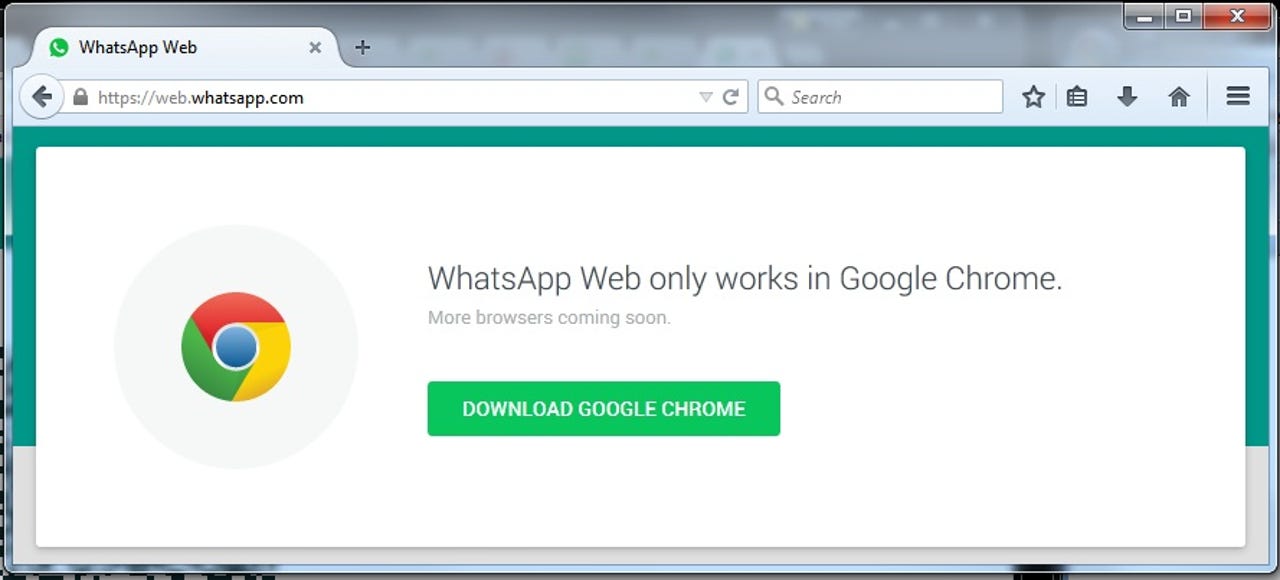WhatsApp for your desktop, but only on Chrome

WhatsApp has released a web client version of its popular social platform for the desktop, but there are a number of limitations that will prevent plenty of users from getting it through their browser of choice.
Currently, users can only get to the instant messaging service's web version if they are using Google's Chrome browser. According to WhatsApp, this is the only browser that will work with the web client at the moment.
Additionally, Apple device users have been left out of the loop, as Apple "platform limitations" prevent WhatsApp from providing the new web client for users who do not have the app installed on anything but an iOS device.
"Unfortunately for now, we will not be able to provide web client to our iOS users due to Apple platform limitations," the company said in a blog post on January 21.
There is no word at present on when this may change.
WhatsApp said that the new web client edition of its platform should be regarded as an extension of users' phones, with all messaging carried out through the platform on the desktop also remaining on the mobile app.
"The web browser mirrors conversations and messages from your mobile device -- this means all of your messages still live on your phone," the company said.
To connect a web browser to the WhatsApp client, users simply have to open https://web.whatsapp.com in Chrome, where they will see a QR code. Once the code is scanned, users can access their WhatsApp account on the desktop, which has been paired with the mobile version.
Featured
However, the user's phone needs to remain connected to the internet for the web client to work, and the company recommends that users install the latest version of the app before pairing the mobile and desktop versions of the platform.
The messaging service, which was bought by social media giant Facebook for around $16 billion early last year, gave its Android version default end-to-end encryption in December -- a move that could see it come under scrutiny by a re-elected UK Prime Minister David Cameron.
Earlier this month, the British prime minister said he would make moves to outlaw forms of digital communication that cannot be read by law-enforcement and intelligence agencies if he wins the next general election.
Such a move would effectively ban messaging services such as WhatsApp and Snapchat, both of which encrypt users' online communications.
